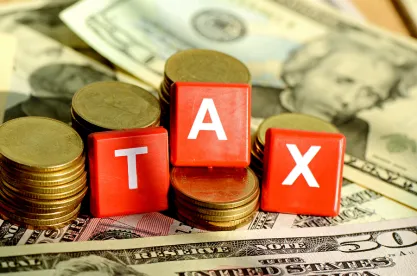The DC Council has passed an amended bill (the False Claims Amendment Act of 2020, B23-0035) that beginning as early as January 2021 will allow tax-related false claims to be raised against large taxpayers for up to 10 years of prior tax periods! This troubling legislation creates a real and imminent possibility of prior tax periods that are closed for assessment under the DC tax law pursuant to DC Code § 47-4301 being reopened by the DC attorney general and/or a private qui tam plaintiff.
While the introduced bill passed a first reading of the Committee of the Whole on Tuesday, November 17, 2020, by a vote of 8-5, the second reading (as amended) passed by a vote of 12-1 (a veto-proof supermajority) on December 1, 2020. The amended bill (as approved by the DC Council) will be sent to Mayor Muriel Bowser for consideration. If the mayor does not veto the bill or if her veto is overridden, the legislation will be assigned an Act number and sent to Congress for a 30-day review period before becoming effective as law. While extremely rare, Congress has an opportunity to reject the DC Council’s Act by passing a joint resolution, which must be signed by the president of the United States to prevent the Act from becoming law. Assuming this doesn’t happen, the Act will become law after the expiration of the 30-day Congressional review period. Assuming the Mayor quickly approves the legislation and Congress does not seek a joint resolution disapproving the Act, the legislation passed by the DC Council could take effect as early as next month!
As amended, the False Claims Amendment Act of 2020 passed by the DC Council will:
-
Remove the taxation bar that exists as part of current law (see DC Code § 2-381.02(d)) and replace it with explicit authorization allowing by the DC attorney general and private qui tam plaintiffs to pursue taxpayers for claims, records or statements made pursuant to Title 47 that refer or relate to taxation when “the District taxable income, District sales or District revenue of the person against who the action is being brought equals or exceeds $1 million for any taxable year subject to any action brought pursuant to this subsection, and the damages pleaded in the action total $350,000 or more.”
-
Require that the DC attorney general “consult with the District’s chief financial officer about the complaint” when tax-related claims are filed by a qui tam
-
Prohibits a claim by a qui tam plaintiff “based on allegations or transactions relating to taxation and that are the subject of an existing investigation, audit, examination, ruling, agreement or administrative or enforcement activity by the District’s chief financial officer.”
-
Not require the District’s chief financial officer “to produce tax information, or other information from which tax information can be inferred, if the production thereof would be a violation of federal law.”
-
Increase the maximum statutory reward for informants under the Taxation Title (DC Code § 47-4111) from 10% to 30% of the proceeds collected as a result of the information obtained.
Practice Note:
The passage of this False Claims Act expansion legislation by the DC Council is a very troubling development for taxpayers doing business in the District and threatens to subject them to the same nightmares (and the cottage industry of plaintiffs’ lawyers) that states like Illinois and New York have allowed over the past decade. As we have seen in those jurisdictions, opening the door to tax-related false claims can lead to significant headaches for taxpayers and usurp the authority of the state tax agency by involving profit-motivated private parties and the local attorney general (AG) in tax enforcement decisions.
Because the statute of limitations for false claims is up to 10 years after the date on which the violation occurs, the typical tax statute of limitations for assessment under the DC tax law will likely not protect taxpayers from false claims actions if this legislation takes effect in the coming months as anticipated. See D.C. Code § 2-381.05(a) (stating that an action may not be brought “more than 10 years after the date on which the violation . . . is committed”). As passed by the DC Council, there is no prospective application and upon becoming law the False Claims Act will immediately apply retroactively to reopen periods that are closed for assessment under the DC tax laws. If reopening prior tax periods up to seven years beyond what is permitted under current law was not enough, treble damages would also be permitted against taxpayers for violations, meaning District taxpayers would be liable for three times the amount of any damages sustained by the District. See D.C. Code § 2-381.02(a). When the starting point for negotiation is treble damages, one can imagine the companies regularly settle false claims attacks for sometimes large dollar amounts despite strong defenses to avoid the costs of litigation and potentially substantial financial risk that can quickly add up when tax, penalties and interest are multiplied. Sophisticated qui tam plaintiffs understand this and regularly extort money out of companies that are far from the “fraudsters” that false claims acts were originally aimed to punish. While the DC Tax law already provides the Office of Tax and Revenue (OTR) and the DC attorney general with more than enough tools to punish those committing fraud or tax evasion (including no statute of limitations, substantial penalties and interest, etc.), the DC Council apparently felt it was necessary to open the floodgates to private qui tam plaintiffs and allow them to take DC tax enforcement into their own hands.
A qui tam plaintiff who files a successful claim may receive between 15–25% of any recovery to the District if the District’s AG intervenes in the matter. If the qui tam plaintiff successfully prosecutes the case on their own, they may receive between 25–30% of the amount recovered. This financial incentive encourages profit-motivated bounty hunters to develop theories of liability not established or approved by the agency responsible for tax administration. While the legislation passed by the DC Council requires the DC attorney general to “consult with the District’s chief financial officer about the complaint” a similar provision under the New York False Claims Act has not given the Department of Taxation and Finance any meaningful autonomy and input in whether to pursue, permit or seek to dismiss the complaint. Allowing private parties to intervene in the administration, interpretation or enforcement of the tax law commandeers the authority of the tax agency, creates uncertainty and can result in inequitable tax treatment. In addition, while the protection against qui tam plaintiff claims for taxation matters “that are the subject of an existing investigation, audit, examination, ruling, agreement or administrative or enforcement activity by the District’s chief financial officer” is a step in the right direction, the protection does not go far enough. For example, it does not protect a taxpayer for matters (such as prior tax periods that are now closed) that were audited by OTR several years ago but are not the subject of an existing audit or examination. Thus, closed audit periods that were audited by OTR and for which OTR cannot assess a tax obligation pursuant to § 47-4301 may be reopened in the very near future and reexamined by the DC attorney general or qui tam plaintiffs as a result of the legislation passed. With such a lucrative and perverse incentive to raise fringe legal attacks in court against companies that have closed tax periods (and perhaps even destroyed related records pursuant to standard record retention laws and internal policies that would allow them to defend against the claims), we expect a cottage industry of plaintiffs’ lawyers to develop in the District of Columbia in 2021 similar what has transpired in Illinois and New York over the past decade. We can only hope that this legislation is an anomaly and doesn’t develop into a nationwide legislative trend in 2021.






 />i
/>i

